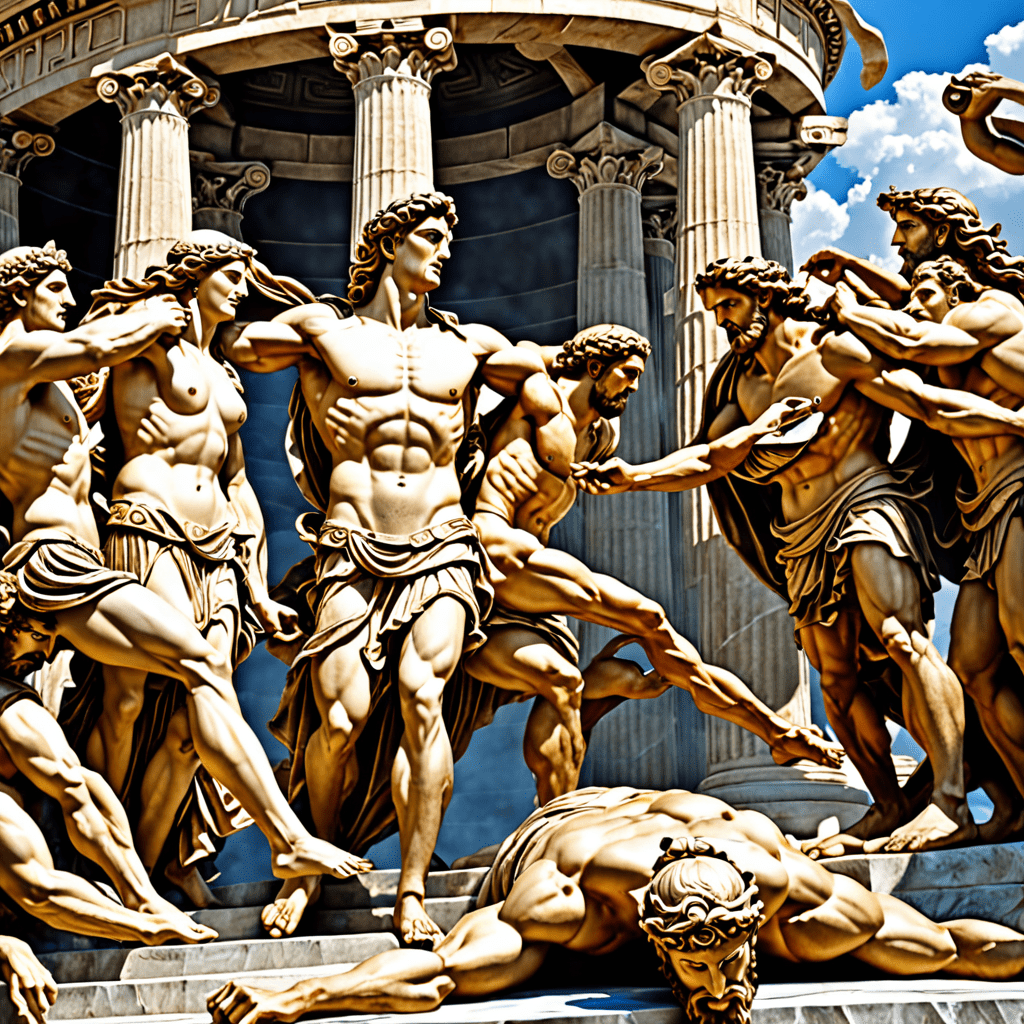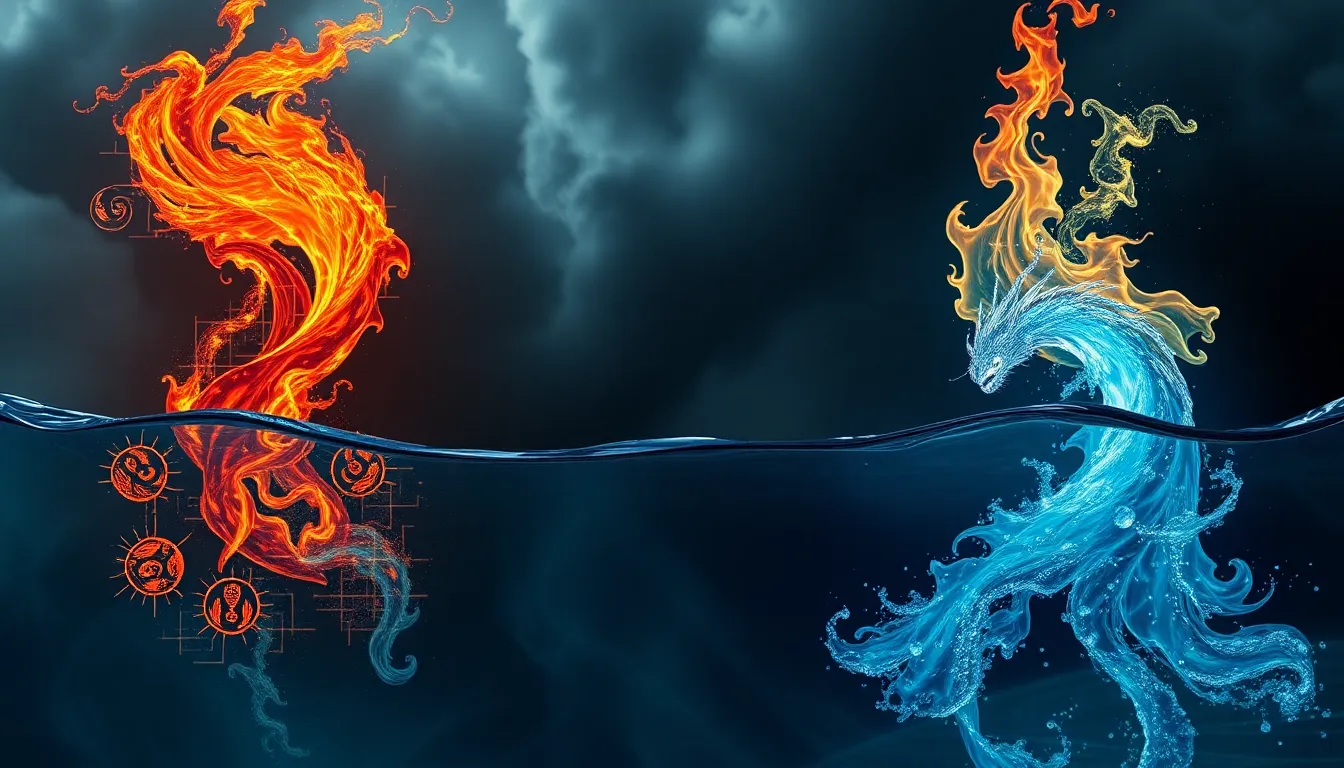When Heroes Rise: The Most Dramatic Battles in Mythology
Introduction: The Power of Mythological Battles
Throughout history, battles have served as a powerful narrative device in mythology, illustrating the eternal struggle between good and evil, order and chaos. These epic confrontations often reflect the values and beliefs of the cultures from which they arise, presenting heroes who embody the ideal traits of courage, strength, and sacrifice. From the ancient Greeks to the indigenous peoples of Africa, the portrayal of heroic battles is a testament to humanity’s fascination with conflict and the quest for identity.
The Concept of Heroism in Mythology
Heroism in mythology can be defined as the embodiment of extraordinary qualities that enable individuals to face insurmountable odds. Key characteristics of a hero include:
- Courage: The ability to confront fear, danger, or adversity.
- Strength: Physical prowess and mental fortitude.
- Selflessness: A willingness to sacrifice personal gain for the greater good.
- Wisdom: The insight to make sound decisions in dire situations.
The journey of a hero often follows a classic narrative arc, starting from ordinary beginnings, leading to extraordinary challenges, and culminating in transformative experiences that define their legacy.
Greek Mythology: The Epic Clash of Titans
One of the most dramatic battles in Greek mythology is the Titanomachy, where Zeus, the youngest son of Cronus, leads the Olympian gods in a rebellion against their predecessors, the Titans. This epic clash not only determined the fate of the gods but also established a new order in the cosmos.
The significance of divine battles like the Titanomachy lies in their representation of:
- The struggle for power and control.
- The establishment of a moral order in the universe.
- The transition from chaos to civilization.
Norse Mythology: Ragnarok and the End of Days
Ragnarok, the prophesied end of the world in Norse mythology, features an epic battle between gods and giants. Key players include Odin, Thor, and Loki, each facing their destinies in this apocalyptic showdown. The conflict is marked by the themes of fate, destruction, and rebirth.
During Ragnarok, significant events unfold, such as:
- The death of key gods, including Odin and Thor.
- The submersion of the world in water.
- The rebirth of the earth and the survival of a few gods.
Hindu Mythology: The Mahabharata and the Battle of Kurukshetra
The Mahabharata, one of the longest epics in the world, centers around the fierce battle of Kurukshetra between the Pandavas and Kauravas. This conflict is not only a physical war but also a profound exploration of morality, duty, and righteousness.
Key figures in this epic include:
- Arjuna: The skilled warrior conflicted by his duty and his moral dilemmas.
- Krishna: Arjuna’s charioteer, who imparts spiritual wisdom.
The battle of Kurukshetra raises essential questions about:
- The nature of dharma (duty).
- The consequences of war.
- The complexity of human emotions.
Mesopotamian Myths: Gilgamesh and the Battle Against Humbaba
In the Epic of Gilgamesh, the titular hero embarks on a journey to confront Humbaba, the fearsome guardian of the Cedar Forest. This battle symbolizes Gilgamesh’s quest for fame and immortality, intertwining themes of friendship, courage, and the search for meaning in life.
Key themes in this narrative include:
- The bond between Gilgamesh and Enkidu, showcasing the importance of friendship.
- The confrontation with fear and the acceptance of mortality.
- The quest for legacy and eternal remembrance.
Celtic Mythology: The Táin Bó Cúailnge and the Hero Cú Chulainn
The Táin Bó Cúailnge, or “The Cattle Raid of Cooley,” features the legendary hero Cú Chulainn, who defends Ulster against the armies of Connacht. His feats of bravery, including single combat, highlight the ideals of heroism in Celtic culture.
Cú Chulainn is renowned for his:
- Superhuman strength and combat skills.
- Ability to enter a battle frenzy known as ‘ríastrad.’
- Defending his homeland against overwhelming odds.
Egyptian Mythology: The Battle Between Horus and Set
The struggle for the throne of Egypt between Horus and Set symbolizes the eternal conflict between order and chaos. Horus, the son of Osiris, seeks to avenge his father’s murder at the hands of Set, the god of chaos and disorder.
This mythological battle is significant for its:
- Representation of the duality of existence.
- Symbolism of kingship and rightful rule.
- Lessons on perseverance and justice.
African Mythology: The Epic of Sundiata and the Battle of Krina
The Epic of Sundiata recounts the rise of Sundiata Keita, the founder of the Mali Empire, and his triumph at the Battle of Krina against the sorcerer-king Soumaoro Kanté. This narrative emphasizes the significance of destiny and the hero’s journey in West African folklore.
Key elements of this epic include:
- The themes of resilience and determination.
- The role of prophecy and fate in the hero’s journey.
- The importance of community and unity in overcoming challenges.
Conclusion: The Legacy of Mythological Battles
Mythological battles have left an indelible mark on cultural identities across the globe. These narratives not only entertain but also impart enduring lessons of heroism, sacrifice, and morality. As we reflect on these epic confrontations, we recognize their power to shape our understanding of right and wrong, courage and cowardice, and the eternal struggle for justice.
Through the lens of mythology, we find timeless stories that resonate with our human experience, reminding us that while the battles may be fictional, the ideals they represent are very real.



